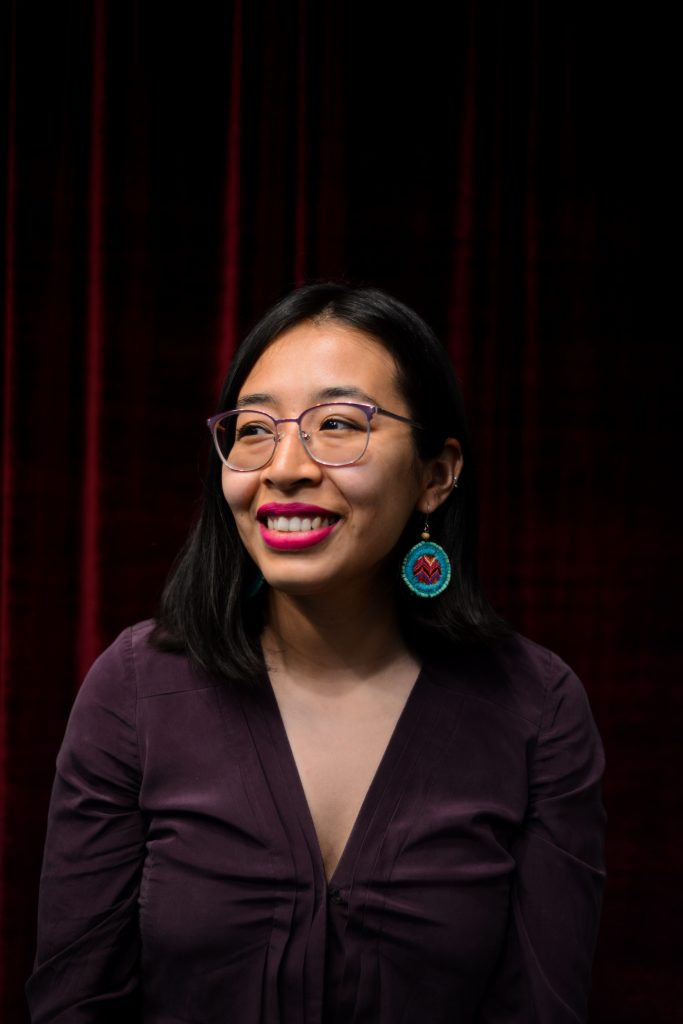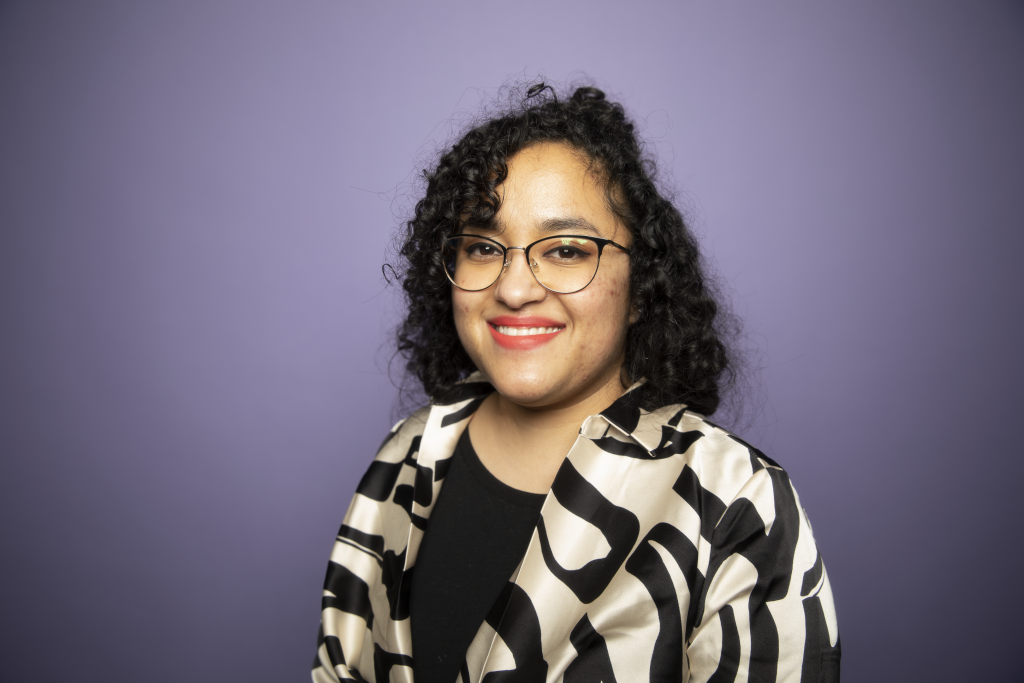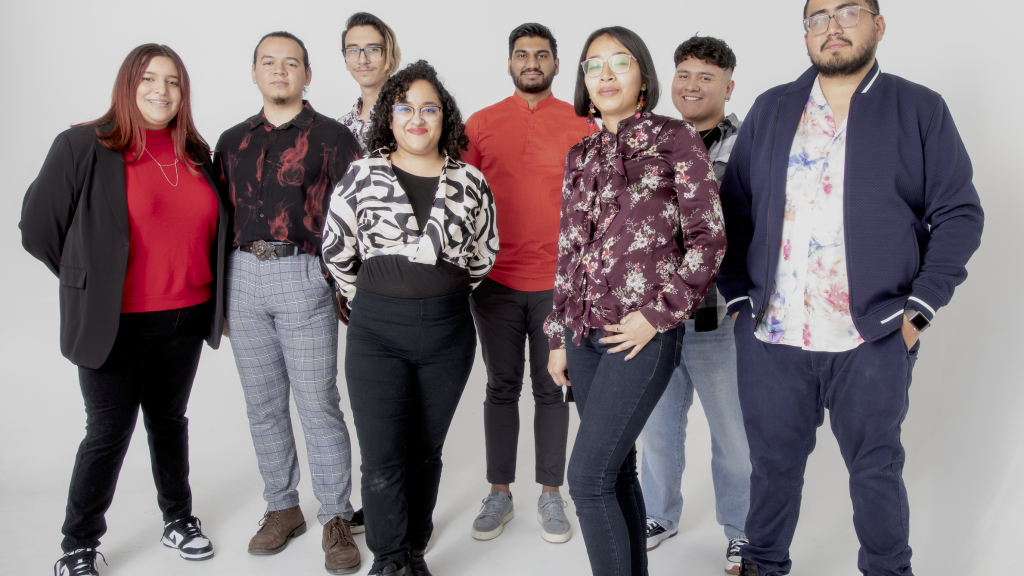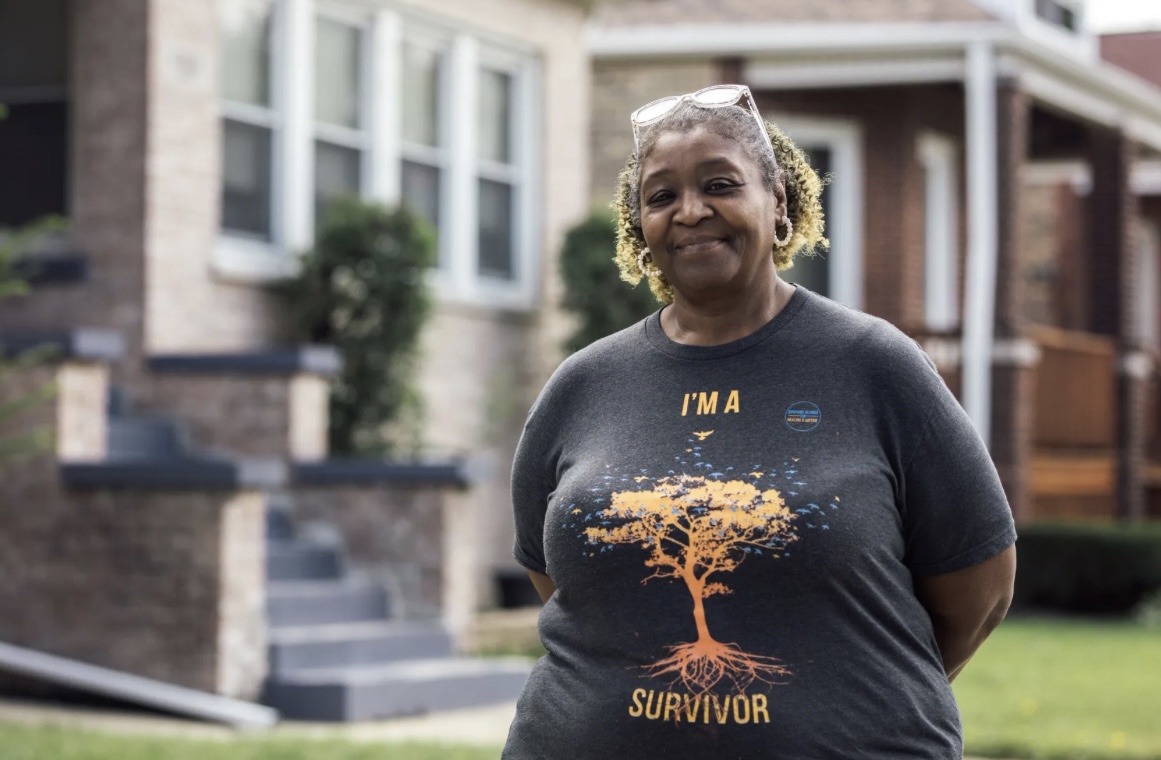Cicero Independiente is a bilingual, independent, people-centered news organization local to the town of Cicero, a Southwest suburb of Chicago.
Cicero Independiente was founded in 2019 by April Alonso, Irene Romulo and Ankur Singh in response to the lack of accessible information focused on the people of Cicero. The trio bonded over a common desire to create local, transparent news for people traditionally neglected by the media, and to give these people the power to decide how their stories are told.
IL Latino News met with Digital Editor April Alonso and Development and Community Engagement Coordinator Irene Romulo to talk about their journey.


ILLN: April and Irene, as two of the founders of Cicero Independiente, tell me about the experience of starting your own publication.
Alonso: I think at the beginning I didn’t know what this would look like, but I’m proud of how it turned out… ‘Cause at the beginning it was just three of us meeting at a local coffee shop, talking about ideas and we’re like ‘let’s do this’ and it was a learning progress as we went. Learning what we should be doing, how to meet community needs and also how to build our internal structure…
Romulo: It’s been challenging to learn a lot of the things that we’ve had to learn, I guess to really launch it and ensure that we can have a presence here in Cicero, not just now but for the future. But it’s definitely been worth it, I think. Just to be able to know that we’re creating something along with other people, like an organization that is making an impact and it’s important and that will hopefully be around for the future… I think I’m just so proud of that.
ILLN: Why was it important to be a bilingual publication?
Alonso: We thought about it by thinking about our parents and thinking about how they think of news and for me, it was like ok during elections my dad’s not going to know what’s going on unless he’s watching Telemundo or something like that, so none of this stuff that’s in English is meant for him. This is my problem with Chicago media, they aren’t taking into consideration Spanish-speakers to be able to give them the information that they need as well, they’re only thinking about English-speakers…
Romulo: Simply, how could we not? Over 85 percent of the population here [in Cicero] is Latinx and mainly speaks Spanish at home or a language other than English at home, so a lot of what we also write about and talk about all the time is how there’s been a lot of barriers that have been placed here in Cicero for people to participate in local government and one of those is language, often excluding people who don’t speak English or understand English, so we couldn’t follow in those same steps.
Alonso: Cicero doesn’t offer programs so that students can have access to so we end up looking outside of Cicero to have access to those, which is another thing of why we started the fellowship that we have. We wanted to be able to bring those resources here, so people can stay local here and not have to go outside of Cicero.
In an effort to fill this void for resources, Cicero Independiente currently runs a paid, multimedia reporting fellowship to equip community members with the tools to lead storytelling and reporting of their own community. Since its origin in 2020, the fellowship has shifted from being youth-based to more age inclusive, which Romulo says has been a positive change to the program. This round focused on environmental justice and included four locals, including two monolingual Spanish-speaking older adults, and two youth.
Romulo: And that’s been a big transformation for us because it’s been a learning experience too from the past sessions because we do want all of our work to be accessible, like April said, to people like our parents, who have had to sacrifice so much to make a place for themselves here and perhaps didn’t have the same opportunities to pursue the things that they wanted, like journalism, or being able to take photos or do interviews.
ILLN: Tell me about Cicero as a neighborhood and a community…
Alonso: There wasn’t that much growing up here, but I wanted to find a way to connect more here and root down here instead of going to Chicago more, and that lead me to see all the people, especially doing this work and being part of Cicero Independiente, all the people that want to create stronger connections and create a community to bond and work together and support each other in anyway that they can. It’s something that we’ve seen other people mention as well when we do interviews, where people feel disconnected but they want to be able to reconnect in Cicero [instead of Chicago] and find their community here.
Romulo: And just about Cicero itself, Cicero is a suburb on the Southwest Side of Chicago. During the ‘90’s and early 2000’s is when it really started to change racially. It’s always been kind of like an immigrant town but it used to be white immigrants from Chevokia, Italians, white people, but they started moving out and it’s now majority Latinx neighborhood with a small Black community that’s also growing as people are displaced from the City of Chicago. But you know, still a lot of anti-Black racism in this town… there’s a group of people that’s trying to maintain power in a way and they’re the same ones who continue to be on the elected boards, the same who are trying to keep this town the way that it has been for a while and who seem to be not as able to change or want to change to accommodate the different populations and in the last three years, at least since we’ve been around, we’re noticing it more because we’re more involved because of Cicero Independiente… But I’ll say there’s a reinvigorated sense of organizing and of getting locally involved, which is why it’s so important for us to be aware of what is going on in the town and try to connect with the different organizations and people who are pushing for different changes to be made.
ILLN: And you actually have a background in organizing, right? How have you implemented that approach into your journalism work?
Romulo: Yeah so I do, and I think that’s what has helped to make sure that we are prioritizing those relationship building and making sure that we are taking the time to build trust with people, even though it might not necessarily result in a story right away or an actual product right away, knowing that that takes time and that we need to be constantly doing outreach and talking to people and listening to people.
ILLN: What is the culture of your newsroom like?
Alonso: We hold space for people to express their appreciations or things they need support [with]. It is different than most workplaces. We try real hard to not overwork and have learned along the way to make sure no one’s overworking. At least being aware that people might be physically tired or emotionally tired and how that shows up, but being able to give people what they need to recuperate and come back.
ILLN: It sounds like you all have a people first approach. In the community but also amongst yourselves…
Alonso: Yeah, seeing people as human beings instead of workers and I think that’s come across not just in our office space but in what we put out as well, that people need to be humanized and not be exploited for their emotions or for their pain.
ILLN: Your website states “we envision a future where we can all participate in documenting our stories for the generations to come.” Can you explain this quote?
Alonso: I think not everyone needs to go to school for journalism and how do we give people the experience to have access to learn those skills and to report locally here? Because being from here [Cicero] and reporting what’s happening here is different [from] when outside media comes in and reports in a voyeuristic way.
Romulo: In organizing, we talk alot about power, analyzing power and who has power, who are the targets of a specific campaign. I don’t think we talk about power enough in journalism and how much power there is in being able to determine what issues, what stories and what people are featured and highlighted, and who gets to document what is happening and from whose viewpoint. Often, I’ve gone to the Cicero archives, I‘ve looked at school newspapers here and a lot of it is written from a white perspective for white people and there’s very little historical record of the impact that Latinos, Chicanos have had not just in Cicero but throughout the country. There’s a lot of our history that’s missing and that’s not told and I think that quote specifically is what that speaks to, us being able to have that power and document our lives. We’re leaving that record for others to see that we’re not just taking what’s happening lightly, we’re not just sitting back and suffering…
Interview has been edited for clarity and length.
_________________________________________________________________________________
Publisher’s Notes: Cicero Independiente and Illinois Latino News (ILLN), are two of nearly 40 independent Chicago-area media outlets, and members of the Chicago Independent Media Alliance (CIMA), who are joining forces for the third annual fundraising campaign kicking off this week. Under the slogan #WeAmplifyChicagoVoices, this diverse and eclectic media group will conduct a two-week campaign between October 3 – 17.

CIMA members serve Black and African American, Latinx, Asian American, immigrant, LGBTQ+, and other Chicago communities. Independent media are particularly vulnerable to the changing media landscape that includes decreased advertising, yet their value as credible information sources continues to rise. Potential donors can learn more about all the CIMA outlets through the promotional campaign video, print, digital and social media assets they’ve produced.
Please consider making a donation by visiting savechicagomedia.org




